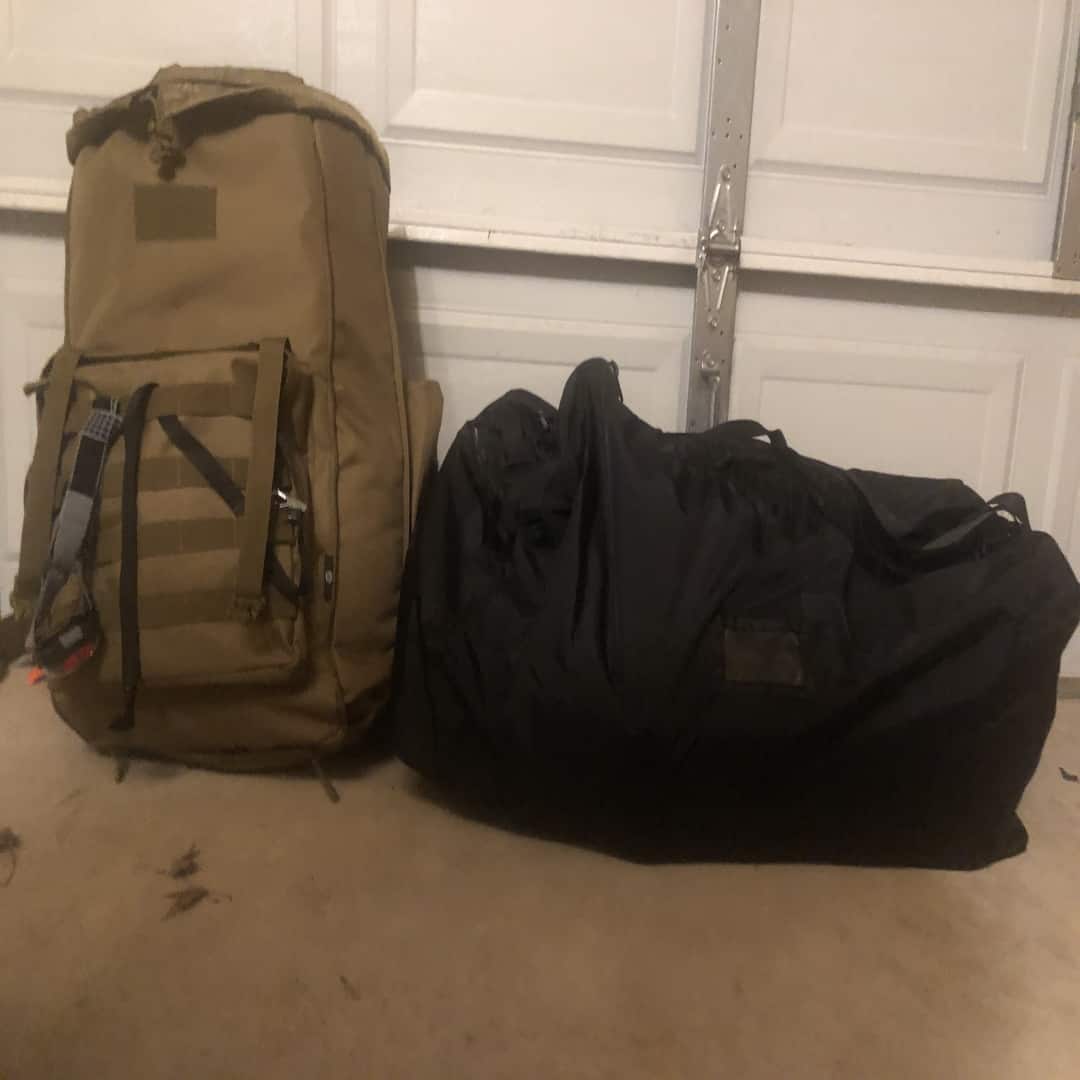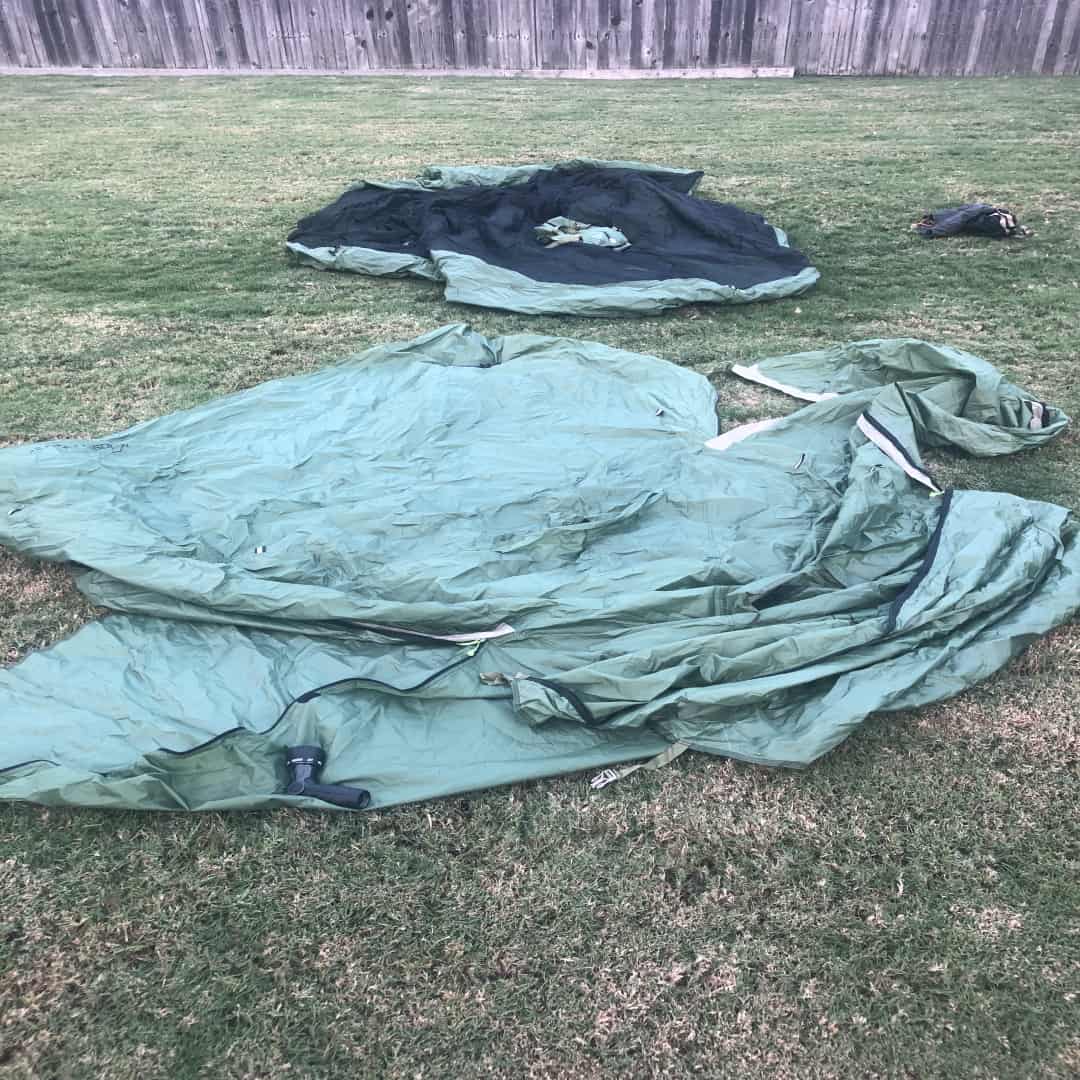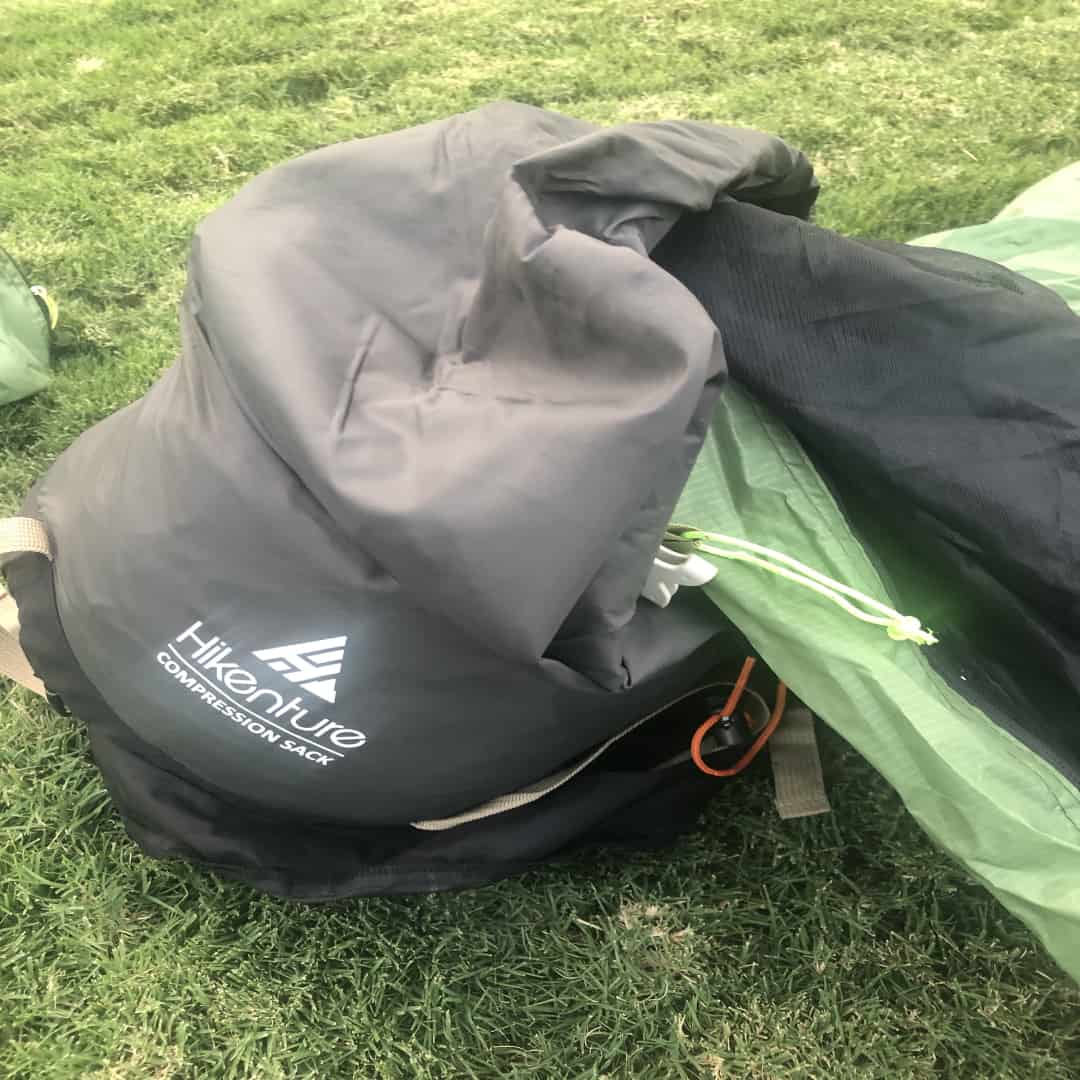What Is The Best Camping Gear Storage Solution
If you click and purchase with one of our links, we earn a commission. Thanks.
After you come back home, make sure to air out your tent and sleeping bag before packing them up for storage. If necessary, wash your sleeping bag according to the manufacturer’s instructions. Then pack them into labeled compression sacks. Your smaller items can be kept in your backpack. Larger items can be placed in plastic bins or hung up on the wall.
According to our own survey, 52% of the people who camped slept in tents. Which is why learning how store gear properly is so important.
Now let’s look at this in more detail.
Camping is a lot of fun and a great way to take an affordable vacation. It’s also much easier to manage social distance when compared to a hotel. And there’s so many things to do while camping including, hiking, fishing, swimming, kayaking and stargazing.

However, to have the most fun with a camping trip, you need the proper equipment. And since most of us are car camping with our families, the list of equipment will grow. Heck, even if you’re a minimalist camper like myself, I still need a place to store my back, tent, sleeping bag and my folding mattress. Yes, I am a tent glamper, I use a tri-fold mattress to sleep on because what’s the point of camping for fun if you wake up the next day feeling like you got run over by a dump-truck.
Here are some tips to help you store your camping gear.
Air Out Your Tent and Sleeping Bag

It’s important that once you come home, that you air out your tent and sleeping bag. This will give them a chance to dry if they are wet from rain or the dew. By allowing them to dry before packing them up, you will avoid them developing rot and mold. The rot and mold will not smell good when you go camping and will reduce the longevity of the camping gear. You can also launder your sleeping bag. We discuss how to clean your sleeping bag in this article.
Wash Your Clothes
When I return from camping, my wife won’t even kiss me because of the lovely camping funk. This should be obvious but after a weekend (or more) of camping, your clothes need to be washed. You want to get them clean from all of the dirt and smells of camping plus it will take care of any insects or oils that might have come along for the ride. After you have them washed, put your camping clothes in their own spot in the closet. I am lucky in that I have a home office that comes complete with its own closet. Thus all of my camping clothes get hung there because I wear them when going on hikes.
Use Labeled Compression Sacks
If you are going to go camping, it’s important to invest in compression sacks. A compression sack makes it easier to pack your sleeping bags, tents and tarps into a smaller package that is easier to carry plus store at home. A synthetic sleeping bag will not compress down as much as a down sleeping bag. The trick to putting your items into a compression sack is to just smash stuff down as much as you can into your sack. Make sure they are all of the way to the bottom of the bag and use your body weight. The straps that come with your bag are to keep the sack closed and are not to be used to force the contents to compress. If you try to use the straps to compress the bag or tent down, this will put stress on your straps which will cause them to rip. Use masking tape or a label maker or a Sharpie to label your sack so that you know what’s’ in each sack.
Keep Your Backpack Ready
A simple storage solution that will also save you time when packing for your next camping trip is to keep your backpack packed. For example, I keep my sleeping bag, flashlights, headlamps, fire starters, first-aid, etc all packed in the backpack. Not only does this save on storage space, it also makes packing much faster. All I need to do is pack my clothes into the pack and it’s ready to go. Which is great for people like me who are known to camp on a moment’s notice.
Use Plastic Bins
There are always items such as tent-poles, sleeping pads, trekking poles, oars, and water toys that don’t go into your backpack but need to keep organized. A simple, cheap and effective way to organize these items is put them into plastic buckets. You can also check out the latest in organizing solutions for items like this at the Container Store. I’m a fan of their Elfa shelving system. It allows you to add customizable shelves to any location. Finally, don’t forget to label your bins if they’re not transparent and are covered.
Hang Super-Large Items Like Bikes
If you go camping, you will often end up with items that are too big to pack in the backpack or stick into a bin. These can be items such as bicycles and kayaks and wakeboards which make going camping so much more fun. A great way to store these items is to leverage the walls of your garage or shed. The best way to use your walls for storage of large items like this is to hang them using pegs on the wall.
Should You Fold Your Tent

There is no reason to fold the tent. If you still have your original stuff sack for your tent, you can attempt to roll it with its tent poles to fit back into the sack. While, I have seen this done on YouTube, most people will not have the ability to do this. Instead, what I do is keep the poles and stakes in the original sack. Then I stuff the tent, rain fly, and tarp I use as a footprint into its own stuff sack. This doesn’t take much effort and keep things nicely organized.
If you do want to try to put your tent back into its original sack, here is how to try to do it:
Put the tent poles back into their own sack. Your rolled up tent cannot be longer than the tent poles. Next, fold your tent and rainfly so that it’s the same width as your tent poles.
Place your tent poles at one end of your tent and start rolling.
If you can manage to force air out of the tent and fly, then you should have your tent rolled up small enough to fit back into the tent sack.
While, I have seen this done on YouTube, most of us, just use compression sacks or shove the tent back into a large duffle bag.
Should You Fold Your Sleeping Bag
Do not fold your sleeping bag because this can cause creases and break the insulation. Breaking the insulation means that the sleeping bag will not be as warm as it was designed for. A stuff sack works well for storing a sleeping bag. You don’t need to be precise with a stuff sack. Grab the end of your zipped sleeping bag and just start stuffing into the bottom of the sack. Make sure the bag goes all of the way into the bottom of the sack. And really shove the sleeping bag into your sack. It’s not going to break, but the more you force it into the sack, the more air that will be forced out. However, a synthetic bag will not compress as much as a down bag. And if you’re a tall person like me (I’m 6 foot 4 inches), it’s still going to be a large sack. However, my 60 liter sack still fits into my backpack. And it’s nice to not worry about rolling and folding, just focus on stuffing it into the sack.
How Long Can You Store Your Tent
You can store your tent indefinitely in its compression sack as long as it stays cool and dry. However, I would pull it out and air it out before your next camping trip if it’s been stored for the offseason. This way you can check for any repairs, apply water repellent if necessary and make it smell fresher.
How Long Can You Store Your Sleeping Bag
You can store your sleeping bag forever in its stuff sack, as long as it stays dry. However, if you have stored it for many months (such as the winter offseason), I would air it out before the next camping trip. This way you can make it smell fresher and double-check the zipper as well as any rips in the fabric.
Preparing For Camping Season
While it is possible to go camping all year round, most people only camp once year, often during the summer. And even if you are a frequent camper like myself, camping gear can still be stored for a long time. In particular, if you have specialized gear for winter camping. At least a few days before you go camping, make sure to take the tent and sleeping bags out of their stuff sacks and air them out. Make sure to assemble the tent to ensure you have all of the parts and spray it with your garden hose to check for leaks. If there are any leaks, apply water repellent spray to the tent and patch any holes using a tent patch kit or use Gorilla tape.
By using these tips you will want to go camping more often because everything will be on hand and ready to go. And it won’t take long to store your gear once you’re back home.